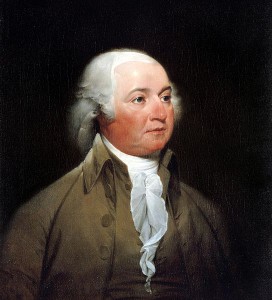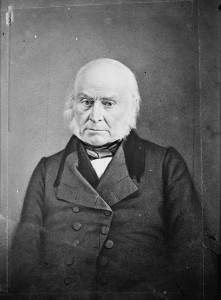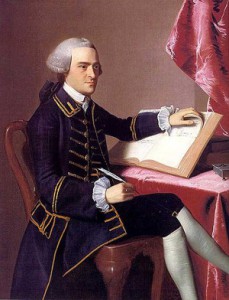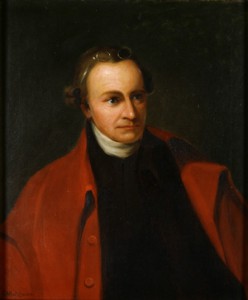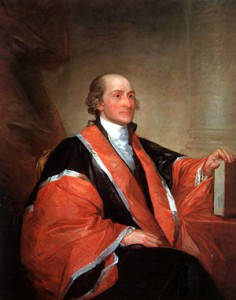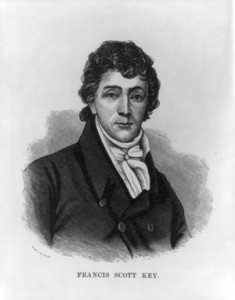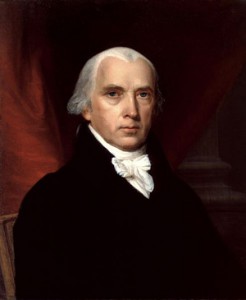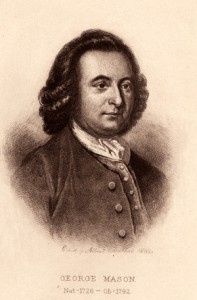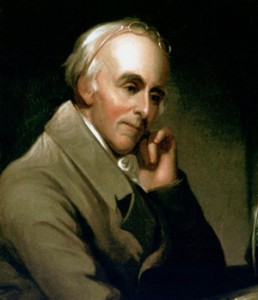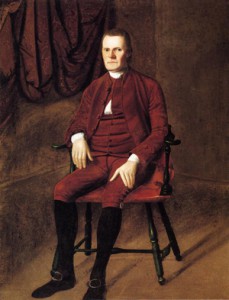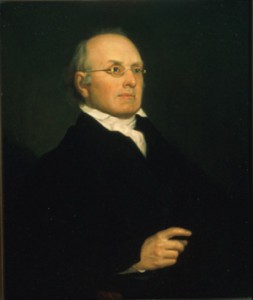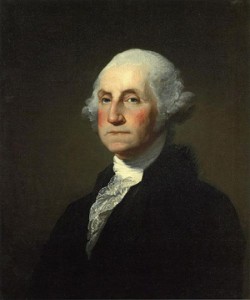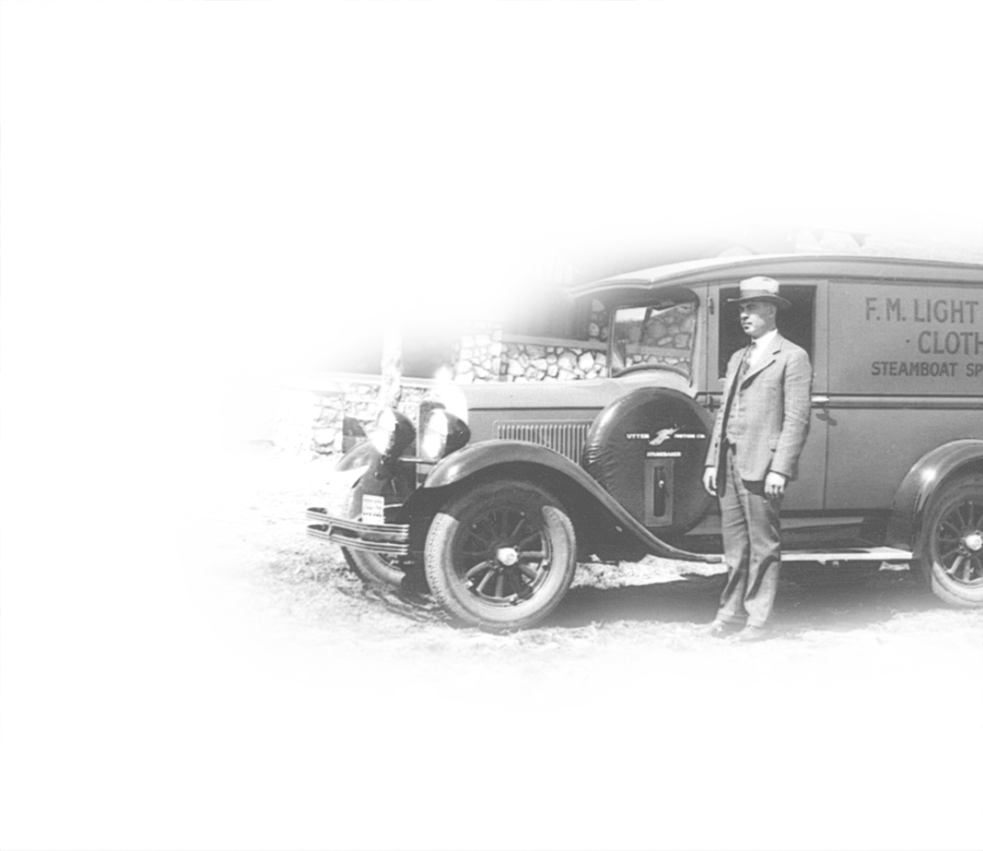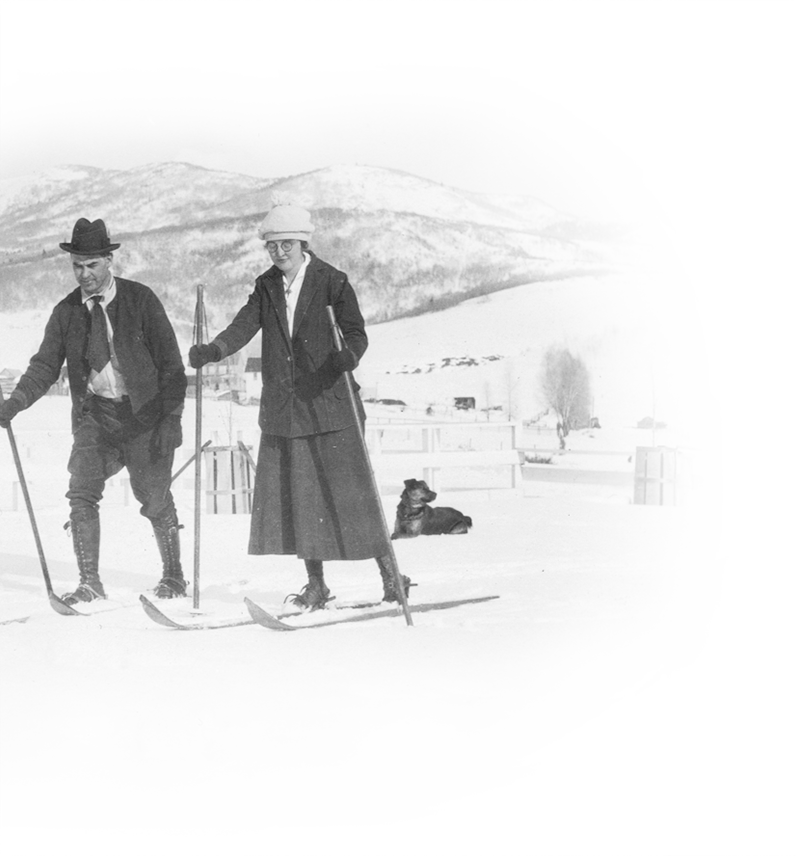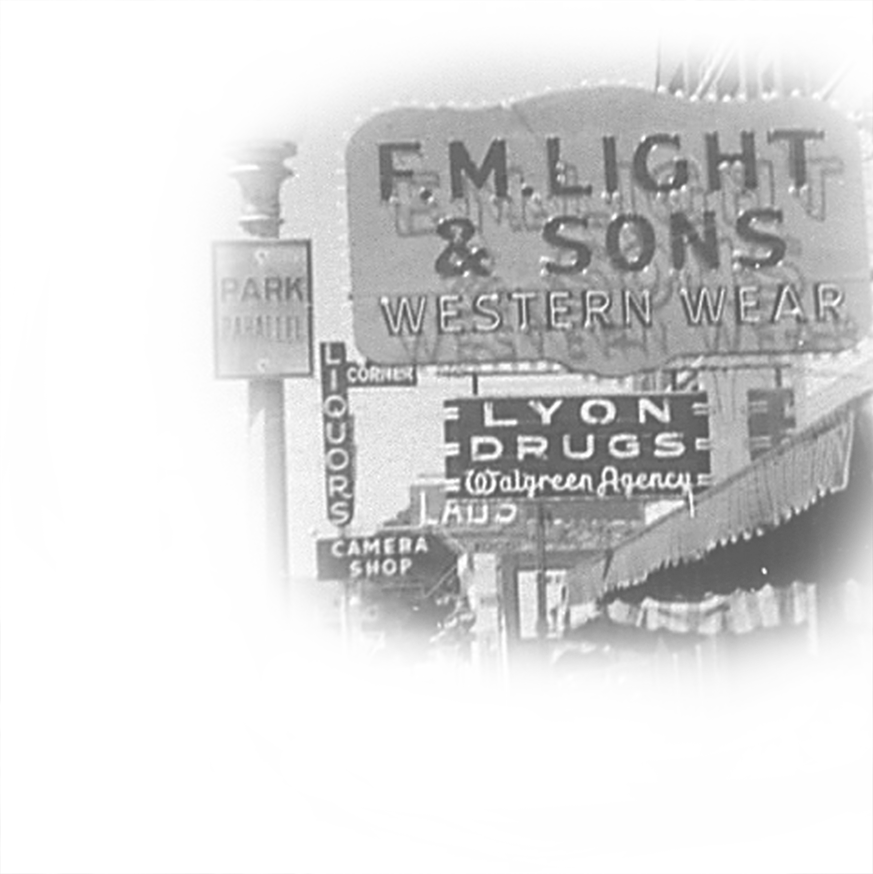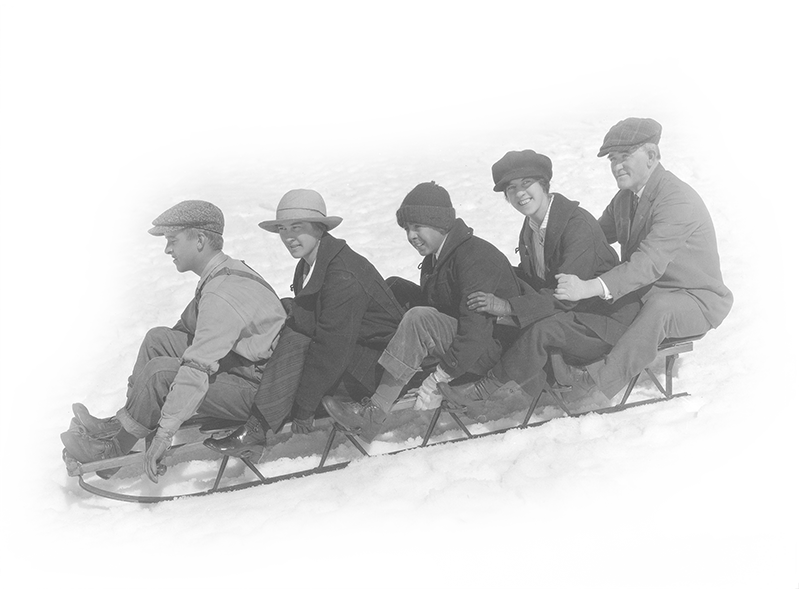A Few Declarations of Founding Fathers and Early Statesmen
John Adams
John Adams – Signer of the Declaration of Independence: Judge; diplomat, one of two signers of the bill of rights; second President of the United States.
“The general principles on which the fathers achieved independence were the general principles of Christianity. I will avow that I then believed, and now believe, that those general principles of Christianity are as eternal and immutable as the existence and attributes of God.”1
“There is no authority, civil or religious – there can be no legitimate government but what is administered by [the] Holy Ghost. There can be no salvation without it. All without it is rebellion and perdition, or in more orthodox words damnation.”2
“Suppose a nation in some distant region should take the Bible for their only law book and every member should regulate his conduct by the precepts there exhibited. . . . What a Eutopia – what a Paradise would this region be!”3
John Quincy Adams
Sixth President of the United States; diplomat; Secretary of State; U.S. Senator; U.S. Representative; “Old Man Eloquent”; “Hell-Hound of Abolition”
“The hope of a Christian is inseparable from his faith. Whoever believes in the Divine inspiration of the Holy Scriptures must hope that the religion of Jesus shall prevail throughout the earth.”4
“In the chain of human events, the birthday of the nation is indissolubly linked with the birthday of the Savior. The Declaration of Independence laid the cornerstone of human government upon the first precepts of Christianity.”5
Congress, 1854
“The great, vital, and conservative element in our system is the belief of our people in the pure doctrines and the divine truths of the Gospel of Jesus Christ.”6
Congress, U. S. House Judiciary Committee, 1854
“Had the people, during the Revolution, had a suspicion of any attempt to war against Christianity, that Revolution would have been strangled in its cradle… In this age, there can be no substitute for Christianity… That was the religion of the founders of the republic and they expected it to remain the religion of their descendants.”7
Benjamin Franklin
Signer of the Declaration; diplomat; printer; scientist; signer of the Constitution; Governor of Florida
“As to Jesus of Nazareth, my opinion of whom you particularly desire, I think the system of morals and His religion as He left them to us, the best the world ever saw or is likely to see.”8
John Hancock
Signer of the Declaration of Independence; President of Congress; Revolutionary General; Governor of Massachusetts
“Sensible of the importance of Christian piety and virtue to the order and happiness of a state, I cannot but earnestly commend to you every measure for their support and encouragement.”9
“He called on the entire state to pray “that universal happiness may be established in the world [and] that all may bow to the scepter of our Lord Jesus Christ, and the whole earth be filled with His glory.”10
He also called on the State of Massachusetts to pray . . .
- “To cause the benign religion of our Lord and Savior Jesus Christ to be known, understood, and practiced among all the inhabitants of the earth.”11
- “That the kingdom of our Lord and Savior Jesus Christ may be established in peace and righteousness among all the nations of the earth.”12
- “That with true contrition of heart we may confess our sins, resolve to forsake them, and implore the Divine forgiveness, through the merits and mediation of Jesus Christ, our Savior. . . . And finally to overrule all the commotions in the world to the spreading the true religion of our Lord Jesus Christ in its purity and power among all the people of the earth.”13
Patrick Henry
Revolutionary General; legislator; “The Voice of Liberty”; ratifier of the U.S. Constitution; Governor of Virginia
“Righteousness alone can exalt America as a nation. Whoever thou art, remember this; and in thy sphere practice virtue thyself, and encourage it in others.”14
“The great pillars of all government and of social life [are] virtue, morality, and religion. This is the armor, my friend, and this alone, that renders us invincible.”15
John Jay
President of Congress; diplomat; author of The Federalist Papers; original Chief Justice of the U.S. Supreme Court; Governor of New York
“The most effectual means of securing the continuance of our civil and religious liberties is always to remember with reverence and gratitude the source from which they flow.”16
“The Bible is the best of all books, for it is the word of God and teaches us the way to be happy in this world and in the next. Continue therefore to read it and to regulate your life by its precepts.”17
“Providence has given to our people the choice of their rulers, and it is the duty as well as the privilege and interest of our Christian nation, to select and prefer Christians for their rulers.”18
Thomas Jefferson
Signer of the Declaration of Independence; diplomat; Governor of Virginia; Secretary of State; third President of the United States
“The practice of morality being necessary for the well being of society, He [God] has taken care to impress its precepts so indelibly on our hearts that they shall not be effaced by the subtleties of our brain. We all agree in the obligation of the moral principles of Jesus and nowhere will they be found delivered in greater purity than in His discourses.”19
“I am a real Christian – that is to say, a disciple of the doctrines of Jesus Christ.”20
Francis Scott Key
U.S. Attorney for the District of Columbia; author of the “Star Spangled Banner”
“[M]ay I always hear that you are following the guidance of that blessed Spirit that will lead you into all truth, leaning on that Almighty arm that has been extended to deliver you, trusting only in the only Savior, and going on in your way to Him rejoicing.”21
James Madison
Signer of the Constitution; author of The Federalist Papers; framer of the Bill of Rights; Secretary of State; fourth President of the United States
“I have sometimes thought there could not be a stronger testimony in favor of religion or against temporal enjoyments, even the most rational and manly, than for men who occupy the most honorable and gainful departments and [who] are rising in reputation and wealth, publicly to declare their unsatisfactoriness by becoming fervent advocates in the cause of Christ; and I wish you may give in your evidence in this way.”22
George Mason
Delegate at the Constitutional Convention; “Father of the Bill of Rights”
“I give and bequeath my soul to Almighty God that gave it me, hoping that through the meritorious death and passion of our Savior and Redeemer Jesus Christ to receive absolution and remission for all my sins.”23
“My soul I resign into the hands of my Almighty Creator, Whose tender mercies are all over His works. . humbly hoping from His unbounded mercy and benevolence, through the merits of my blessed Savior, a remission of my sins.”24
Benjamin Rush
Signer of the Declaration of Independence; Surgeon General of the Continental Army; ratifier of the U.S. Constitution; “Father of American Medicine”; Treasurer of the U.S. Mint; “Father of Public Schools under the Constitution”
“I do not believe that the Constitution was the offspring of inspiration, but I am as satisfied that it is as much the work of a Divine Providence as any of the miracles recorded in the Old and New Testament.”25
“[T]he only means of establishing and perpetuating our republican forms of government is the universal education of our youth in the principles of Christianity by means of the Bible.”26
“[C]hristianity is the only true and perfect religion; and… in proportion as mankind adopt its principles and obey its precepts, they will be wise and happy.”27
Roger Sherman
Signer of the Declaration; signer of the Constitution; “Master Builder of the Constitution”; judge; framer of the Bill of Rights; U.S. Senator
“God commands all men everywhere to repent. He also commands them to believe on the Lord Jesus Christ, and has assured us that all who do repent and believe shall be saved… [G]od… has absolutely promised to bestow them on all these who are willing to accept them on the terms of the Gospel – that is, in a way of free grace through the atonement. “Ask and ye shall receive [John 16:24]. Whosoever will, let him come and take of the waters of life freely [Revelation 22:17]. Him that cometh unto me I will in no wise cast out” [John 6:37].”28
“[I]t is the duty of all to acknowledge that the Divine Law which requires us to love God with all our heart and our neighbor as ourselves, on pain of eternal damnation, is Holy, just, and good. . . . The revealed law of God is the rule of our duty.”29
“The volume which he consulted more than any other was the Bible. It was his custom, at the commencement of every session of Congress, to purchase a copy of the Scriptures, to peruse it daily, and to present it to one of his children on his return.”30
Joseph Story
U.S. Congressman; “Father of American Jurisprudence”; U.S. Supreme Court Justice appointed by President James Madison
One of the beautiful boasts of our municipal jurisprudence is that Christianity is a part of the Common Law. There never has been a period in which the Common Law did not recognize Christianity as lying at its foundations.31
I verily believe that Christianity is necessary to support a civil society and shall ever attend to its institutions and acknowledge its precepts as the pure and natural sources of private and social happiness.32
George Washington
Judge; member of the Continental Congress; Commander-in-Chief of the Continental Army; President of the Constitutional Convention; first President of the United States; “Father of his Country”
“You do well to wish to learn our arts and ways of life, and above all, the religion of Jesus Christ. These will make you a greater and happier people than you are.”33
“While we are zealously performing the duties of good citizens and soldiers, we certainly ought not to be inattentive to the higher duties of religion. To the distinguished character of Patriot, it should be our highest glory to add the more distinguished character of Christian.”34
Daniel Webster
U.S. Senator; Secretary of State; “Defender of the Constitution”
“[T]he Christian religion – its general principles – must ever be regarded among us as the foundation of civil society.”35
“Whatever makes men good Christians, makes them good citizens.”36
“[T]o the free and universal reading of the Bible… men [are] much indebted for right views of civil liberty.”37
Noah Webster
Revolutionary soldier; judge; legislator; educator; “Schoolmaster to America”
“[T]he religion which has introduced civil liberty is the religion of Christ and His apostles… This is genuine Christianity and to this we owe our free constitutions of government.”38
“The moral principles and precepts found in the Scriptures ought to form the basis of all our civil constitutions and laws.”39
“[O]ur citizens should early understand that the genuine source of correct republican principles is the Bible, particularly the New Testament, or the Christian religion.”40
“[T]he Christian religion is the most important and one of the first things in which all children under a free government ought to be instructed. No truth is more evident than that the Christian religion must be the basis of any government intended to secure the rights and privileges of a free people.”41
“[T]he Christian religion… is the basis, or rather the source, of all genuine freedom in government… I am persuaded that no civil government of a republican form can exist and be durable in which the principles of Christianity have not a controlling influence.”42
For more quotes, Click Here.
Endnotes
1. The Writings of Thomas Jefferson. In a letter from John Adams to Thomas Jefferson on June 28, 1813.
2. Letter from John Adams to Benjamin Rush, dated December 21, 1809, from the original in our possession.
3. John Adams, Works, Vol. II, pp. 6-7, diary entry for February 22, 1756.
4. Life of John Quincy Adams, W. H. Seward, 1849.
5. John Quincy Adams, An Oration Delivered Before the Inhabitants of the Town of Newburyport at Their Request on the Sixty-First Anniversary of the Declaration of Independence, July 4, 1837
6. Journal of the House of the Representatives of the United States of America (Washington, DC: Cornelius Wendell, 1855), 34th Cong., 1st Sess., p. 354, January 23, 1856; see also: Lorenzo D. Johnson, Chaplains of the General Government With Objections to their Employment Considered (New York: Sheldon, Blakeman & Co., 1856), p. 35, quoting from the House Journal, Wednesday, January 23, 1856, and B. F. Morris, The Christian Life and Character of the Civil Institutions of the United States (Philadelphia: George W. Childs, 1864), p. 328.
7. Reports of Committees of the House of Representatives Made During the First Session of the Thirty-Third Congress, 1854.
8. Works of Benjamin Franklin, March 9, 1790.
9. Independent Chronicle (Boston), November 2, 1780
10. John Hancock, A Proclamation For a Day of Public Thanksgiving 1791, given as Governor of the Commonwealth of Massachusetts, from an original broadside in our possession.
11. John Hancock, Proclamation for a Day of Thanksgiving and Praise, September 16, 1790, from an original broadside in our possession.
12. John Hancock, Proclamation for a Day of Public Thanksgiving, October 25, 1792, from an original broadside in our possession.
13. John Hancock, Proclamation for Day of Public Fasting, Humiliation and Prayer, March 4, 1793, from a broadside in our possession.
14. Patrick Henry: Life, Correspondence and Speeches, January 8, 1799.
15. Patrick Henry: Life, Correspondence and Speeches, January 8, 1799.
16. William Jay, The Life of John Jay, June 29, 1826.
17. John Jay, The Winning of the Peace. Unpublished Papers 1780-1784, April 8, 1784.
18. William Jay, The Life of John Jay, October 12, 1816.
19. Thomas Jefferson, The Writings of Thomas Jefferson, September 27, 1809.
20. Thomas Jefferson, The Writings of Thomas Jefferson, January 9, 1816.
21. From Francis Scott Key to John Randolph, 1853.
22. James Madison, The Papers of James Madison, September 25, 1773.
23. Will of Colonel George Mason, June 29, 1715 (this will was later replaced by the will below).
24. Will of George Mason, attested March 20, 1773.
25. Benjamin Rush, Letters of Benjamin Rush, July 9, 1788.
26, 27. Benjamin Rush, Essays, Literary, Moral & Philosophical, 1798.
28, 29. Correspondence Between Roger Sherman and Samuel Hopkins, 1889.
30. The Globe (Washington DC newspaper), August 15, 1837
31, 32. Joseph Story, Life and Letters of Joseph Story, 1851.
33. George Washington, The Writings of Washington, from his speech to the Delaware Indian Chiefs on May 12, 1779.
34. George Washington, The Writings of Washington, General Orders of May 2, 1778.
35. Daniel Webster, Mr. Webster’s Speech in Defence of the Christian Ministry and in Favor of the Religious Instruction of the Young. Delivered in the Supreme Court of the United States, February 10, 1844.
36. Daniel Webster, The Works of Daniel Webster, December 22, 1820.
37. Daniel Webster, Address Delivered at Bunker Hill, June 17, 1843.
38, 39, 40. Noah Webster, History of the United States.
41. Noah Webster, A Collection of Papers on Political, Literary, and Moral Subjects October 25, 1836
42. K. Alan Snyder, Defining Noah Webster: Mind and Morals in the Early Republic, October 16, 1829.
Image credit:
Photos are in the public domain
Photos of John Q. Adams, Francis Scot Key, George Mason are in the public domain because the copyright has expired in the U.S.

